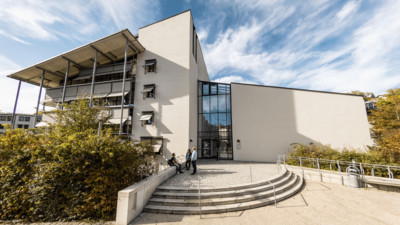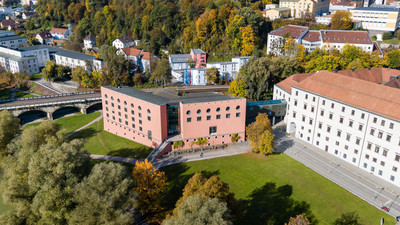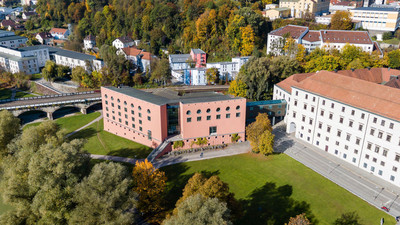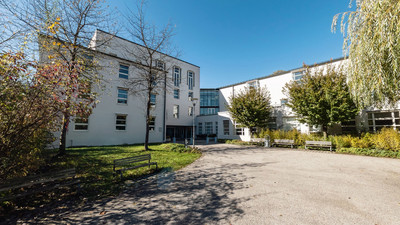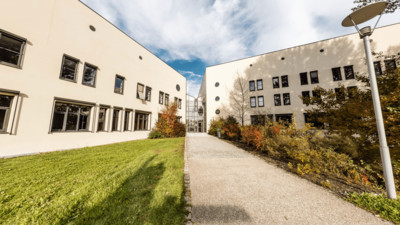Ever since policy reforms started to gain traction in the 1980s, the Vietnamese leadership has eased control of its citizens' public and private lives, bringing about a transformation of Vietnamese society. This process has gathered momentum as the country increasingly opened up to the rest of the world.
The multi-national group of researchers explores whether these developments have affected the politics of memory in Vietnam: "We're examining whether Vietnamese historical publications, school books, websites, museums and historical sites have become a setting for national and transnational historiographical debate, and whether the official government historiography has begun to reassess Vietnamese historical facts," explained Dr Großheim.
One of the things the researchers are looking for is evidence of a reinterpretation of key topics from the first 25 years of the reformation process (1986-2011): Has the class struggle narrative in the state-sanctioned view of history given way to a narrative legitimising more recent liberal market reforms? How have the disjunctions in the history of the Vietnamese communist party been treated – a topic that had been largely ignored thus far? How has the depiction of the war changed?
It is also examined to which extent the Vietnamese state seeks to use the new media to propagate its version of history. Specialised online forums and official websites aside, potential information channels include Youtube and TV stations broadcasting in the Vietnamese language. In order to gain access to additional 'offline' sources, the researchers have been planning a number of trips to Vietnam, including one to visit the recently-established memorial site of the public security forces in Tuyen Quang, about 100 kilometres to the northwest of Hanoi. Dr Großheim has been able to connect his research to the results of his recent research at the renowned Wilson Center in Washington, D.C., where he researched the role of communist East Germany's Ministry of State Security in modernising the Vietnamese state security apparatus, and thus in establishing and strengthening the Vietnamese one-party system from 1960-1989.
His travels to Vietnam also serve to promote academic exchanges with his Vietnamese project partners in Hanoi: Professor Pham Hong Tung, Director of the Institute of Vietnamese Studies and Development Sciences of Vietnam National University, Hanoi; Professor Pham Quang Minh, Vice President of the University of Social Sciences and Humanities at the Vietnam National University, Hanoi, and Professor Phan Huy Le, President of the Association of Vietnamese Historians. The project partners know Passau well: both Professor Pham Hong Tung and Professor Pham Quang Minh studied at the University of Passau, while Professor Phan Huy Le has taken part in conferences hosted by Passau on numerous occasions.
About Dr Großheim
Dr Großheim studied Southeast Asian Studies at Passau, including one year's study at the School of Vietnamese Language of the University of Hanoi on a DAAD scholarship in 1987/88. In 1996, he completed his doctorate at the University of Passau, writing his thesis on the topic of: 'Nordvietnamesische Dorfgemeinschaften: Kontinuität und Wandel. Vom Beginn der Kolonialzeit bis zum Ende der Vietnamkriege' (Village Communities in North Vietnam – Continuity and Change from the Beginning of the Colonial Era until the End of the Vietnam Wars). He worked as a graduate research assistant and post-doctoral fellow at the Centre for East and Southeast Asian Studies at Lund University (Sweden) and Humboldt University in Berlin. In 2009, he completed his postdoctoral habilitation at the University of Passau. His career path has included a renewed stint at Humboldt University as visiting professor at the Chair of Southeast Asian History and Society, and at the Research Institute for Languages and Cultures of Asia and Africa of Tokyo University of Foreign Studies. Following his fellowship as part of the History and Public Policy Programme of the Wilson Center, Washington D.C., he currently holds the post of Reader at the Chair of Southeast Asian Studies of the University of Passau, where he heads the research project on the politics of memory in Vietnam.
Dr Großheim has successfully secured project funding from the German Research Foundation (DFG) for a period of three years. The funding programme, which is specifically directed at early career researchers who have recently completed their doctoral study, aims to give ECRs the opportunity to work full-time on their research project without having to take on any additional duties at their university. It also aims to strengthen the profiles of early career researchers at universities and in the third-party funding area, thus answering to the growing significance of third-party funding, research and publication activity for academics' careers.

